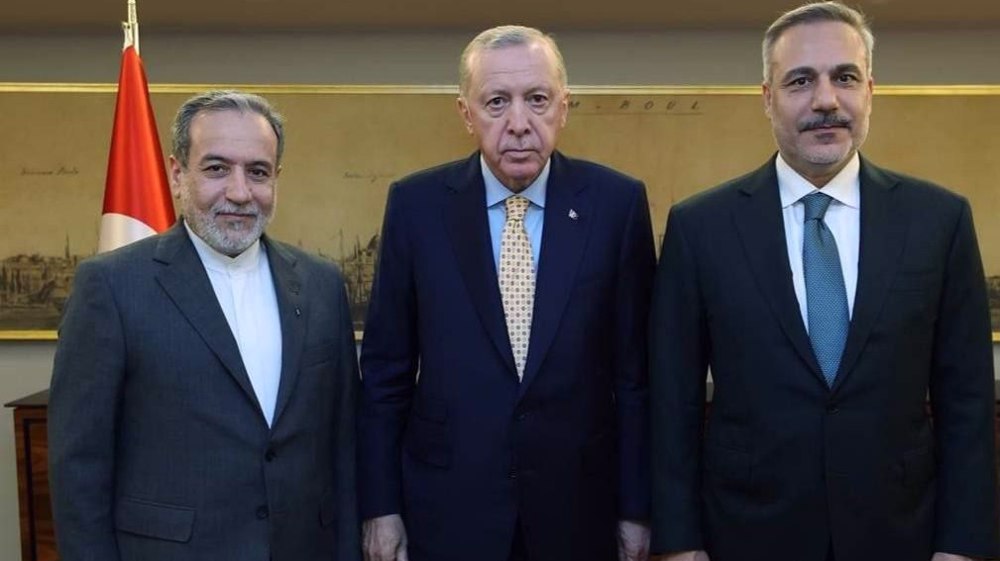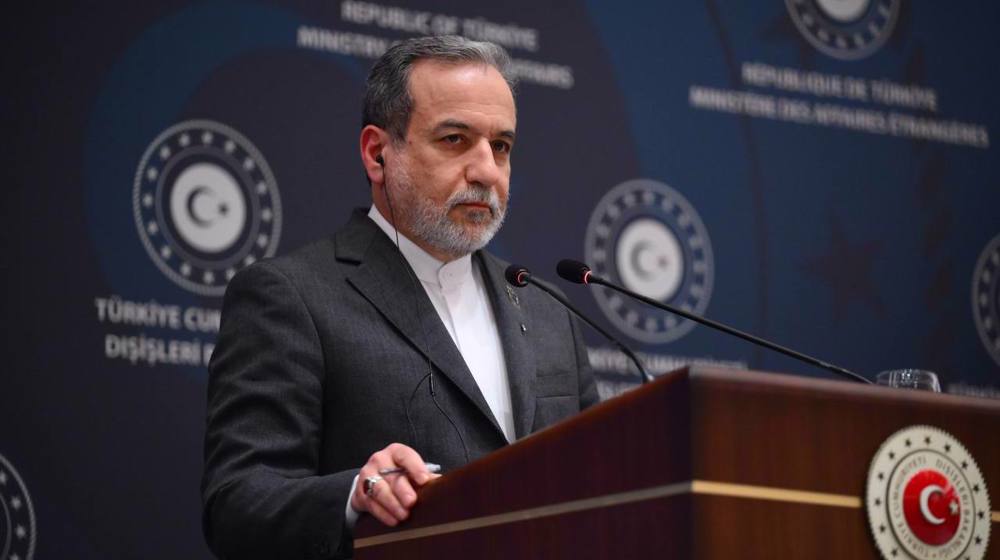Turkey’s ruling AKP may form coalition if fails to secure majority: Erdogan
Turkish President Recep Tayyip Erdogan says he might seek to form a coalition government if his ruling Justice and Development Party (AKP) fails to secure a majority in the upcoming parliamentary and presidential elections.
“If it is under 300 [seats], then there could be a search for a coalition,” the Turkish leader said in an interview with Kral FM radio station on Wednesday night, adding, however, that the probability of this scenario would be “very, very low.”
Erdogan has long been an ardent critic of coalition governments, believing that the fractious coalition politics was responsible for hampering the Turkish government in the 1990s. Back in May 2015, he even hailed Italy for adopting a law that banned the formation of coalition governments.
The Turkish leader also believes that coalition governments, formed through parliamentary systems, are all against stability in any given country, unlike a presidential system, which boosts stability.
Back in April, Erdogan said parliamentary elections would be brought forward to June 24, more than a year earlier than planned, so that the president could take on executive powers as authorized in last year's referendum on constitutional reforms.
He argued that his administration was facing numerous legal problems, including economic challenges and the war in Syria that could be solved only with a more powerful presidency.
The AKP has maintained its majority in parliament for nearly all of its almost 16 years in power, only losing it in the June 2015 vote. However, parties failed to form a coalition at the time and Erdogan called a new election in November that year, restoring once again the AKP’s majority.
So far, opinion polls on average have placed the incumbent president around 20 percentage points ahead of his closest rival, Muharrem Ince of the main opposition Republican People’s Party (CHP).
However, if the election goes to a second round between the two candidates, who get the most votes, parties in the “Nation Alliance” that includes the CHP have said they would call on voters to support the alliance’s second-round candidate.
Ince has said if elected as president, he would offer vice presidential roles to leaders of the other parties in their alliance. However, it is not quite clear whether other opposition voters would gather around him in the second round.
Some 60 million registered Turkish voters will be eligible to hit the polls on Sunday in a landmark presidential and parliamentary election, during which votes will be put in a single envelope for the first time.
Under the constitutional changes going into effect after the decisive vote, the number of legislators in parliament will increase to 600 from 550 currently.
Meanwhile, rights campaigners and international organizations have expressed doubts about the legitimacy of the elections, which would come under a renewed state of emergency in Turkey. The measure has been in place since a failed coup two years ago, allowing the government to jail or dismiss more than 200,000 people over suspected links to coup plotters.
Earlier this month, Erdogan promised that the first thing he would do after being re-elected in the elections would be to suspend the emergency law.
The emergency law has helped Erdogan and his security apparatus in cracking down on those deemed to have played a role in the coup attempt.
The United Nations estimates that some 160,000 people have been arrested and a similar number have been suspended from their jobs under the emergency rule.
Erdogan’s opponents have repeatedly criticized him for going beyond the rule of law in the crackdown, alleging that he uses the state of emergency as a pretext to quash dissent. He rejects those allegations and insists that the law, which enables his administration to bypass parliament in passing new laws and allows them to suspend rights and freedoms, is needed to protect Turkey against further security threats.
'Blatant war crime': Iran denounces US-Israel strikes on Gandhi hospital in Tehran
IRGC spox: 650 casualties for US military in two days as Iran missiles force aircraft carrier to fle
Tehran warns of false-flag operations, says Israel ‘undoubtedly’ seeking to widen war
New wave of attacks devastates key US base in Bahrain as Iran strikes back
Melania Trump chairs UN children's meeting as Iran buries kids killed in US-Israeli attack
Why Iran’s Leader refused special protection, leading from the front until last breath
Hezbollah strikes Israeli surveillance, military base in Golan Heights, occupied lands
Iran holds funeral for scores of schoolgirls murdered in US-Israeli aggression


















 This makes it easy to access the Press TV website
This makes it easy to access the Press TV website